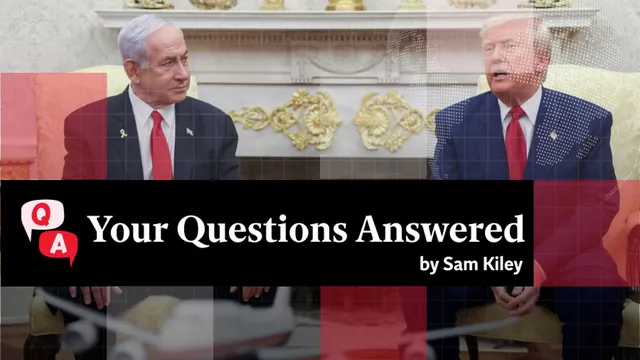
Trump announces ceasefire between Israel and Iran to end 12-day war
2025-06-26 17:30- On June 23, Donald Trump announced a ceasefire between Israel and Iran following a 12-day conflict.
- The ceasefire is set to take effect within six hours and has specific phased implementation periods.
- This agreement aims to bring stability and peace to the region after significant loss of life and escalating tensions.
Express your sentiment!
Insights
On June 23, 2025, U.S. President Donald Trump declared a 'complete and total' ceasefire between Israel and Iran, which had been engaged in a violent conflict that he referred to as the '12-day war'. Following a series of escalating hostilities marked by missile exchanges and airstrikes, the situation had resulted in over 900 deaths in Iran and 25 in Israel, with thousands of injuries. Trump's announcement stated that the ceasefire would take effect within six hours and last for an initial 12 hours, which would transition into another 12-hour period, leading to an official end of the conflict. This declaration came after Iran had launched missiles at the Al-Udeid Air Base in Qatar, where U.S. troops were stationed, in response to U.S. airstrikes on Iranian nuclear facilities. The ceasefire agreement reportedly involved coordinated diplomatic efforts led by Trump and Qatar’s leadership to mitigate the crisis, emphasizing the goal of achieving stability in the region. While both Israel and Iran's commitment to the ceasefire was indicated, earlier missiles strikes on each other's territories raised questions about compliance and the potential for continued violence. As international observers awaited confirmation of the cessation of hostilities, various diplomatic talks were underway to ensure a sustainable peace.
Contexts
The history of the Israel-Iran conflict is a complex narrative rooted in geopolitical rivalries, ideological differences, and historical grievances. The tension between the two nations can be traced back to the Islamic Revolution in Iran in 1979, which marked a significant turning point in Iranian foreign policy and relations with Israel. Prior to the revolution, Iran, under the Shah, was a close ally of the United States and maintained a cordial relationship with Israel. However, the overthrow of the Shah and the establishment of the Islamic Republic led to a radical shift. The new regime viewed Israel as a key adversary and labeled it as part of the wider Western imperialist agenda. This ideological shift fostered deep-seated animosity towards Israel, leading to the severance of diplomatic ties and the rise of hostile rhetoric from Iranian leaders, including the declaration of Israel as a primary enemy of the state. Throughout the 1980s and beyond, the conflict between Israel and Iran escalated, particularly following the Iran-Iraq War. Iran sought to expand its influence in the region, supporting various militant groups hostile to Israel, most notably Hezbollah in Lebanon and Hamas in the Gaza Strip. These groups received significant backing from Iran, both financially and militarily, as part of a broader strategy to confront Israel. Israel, in turn, responded with targeted military operations, including airstrikes against Iranian targets in Lebanon and Syria, as well as preemptive strikes aimed at curbing Iranian influence in the region. The dynamic between these nations, characterized by proxy warfare, significantly shaped the security considerations of both countries. In the 21st century, the conflict entered a new phase, particularly with the development of Iran's nuclear program. The international community, led by the United States and several European nations, grew increasingly concerned about the potential for Iran to develop nuclear weapons. Israel viewed a nuclear-capable Iran as an existential threat, prompting the Israeli government to advocate for a policy of containment and deterrence. This led to a series of covert operations, including cyberattacks against Iranian nuclear facilities and targeted assassinations of key Iranian scientists. Diplomatic efforts, such as the Joint Comprehensive Plan of Action (JCPOA) agreed upon in 2015, aimed to curb Iran's nuclear ambitions but ultimately faced criticism and challenges, especially after the U.S. withdrawal from the agreement in 2018. As of 2025, the Israel-Iran conflict remains a critical flashpoint in the Middle East. The geopolitical landscape continues to evolve, with Iran's regional activities, including its support for militias in Syria and Iraq, raising alarms in Israel and among its allies. The tensions are compounded by ongoing debates about Iran’s missile capabilities and its increasing military presence close to Israeli borders. Israel's strategy combines military readiness with intelligence operations aimed at mitigating perceived threats. The ongoing conflict illustrates a broader struggle for power and influence in an increasingly volatile region, emphasizing the importance of understanding the historical context and current dynamics in anticipating future developments in the Israel-Iran relationship.